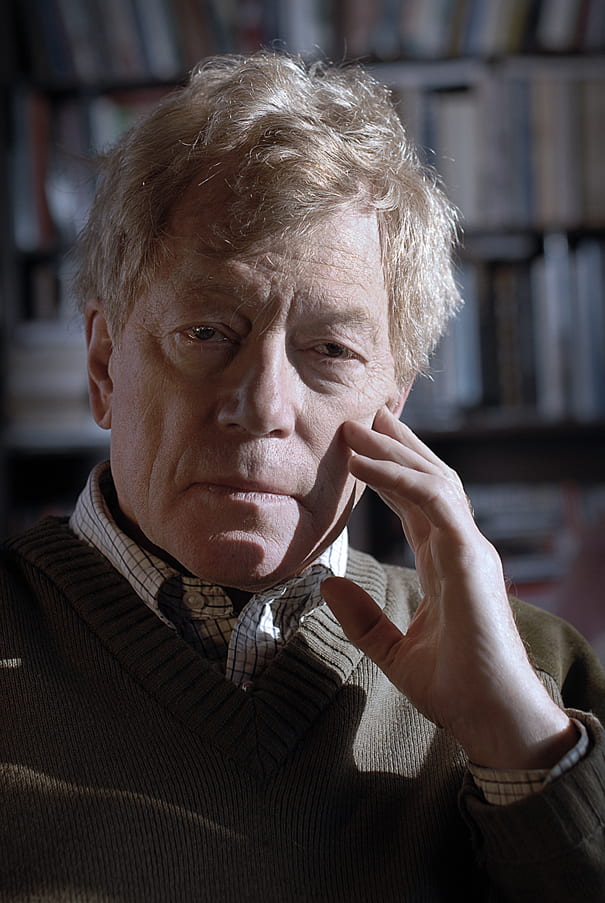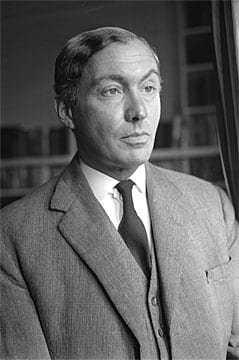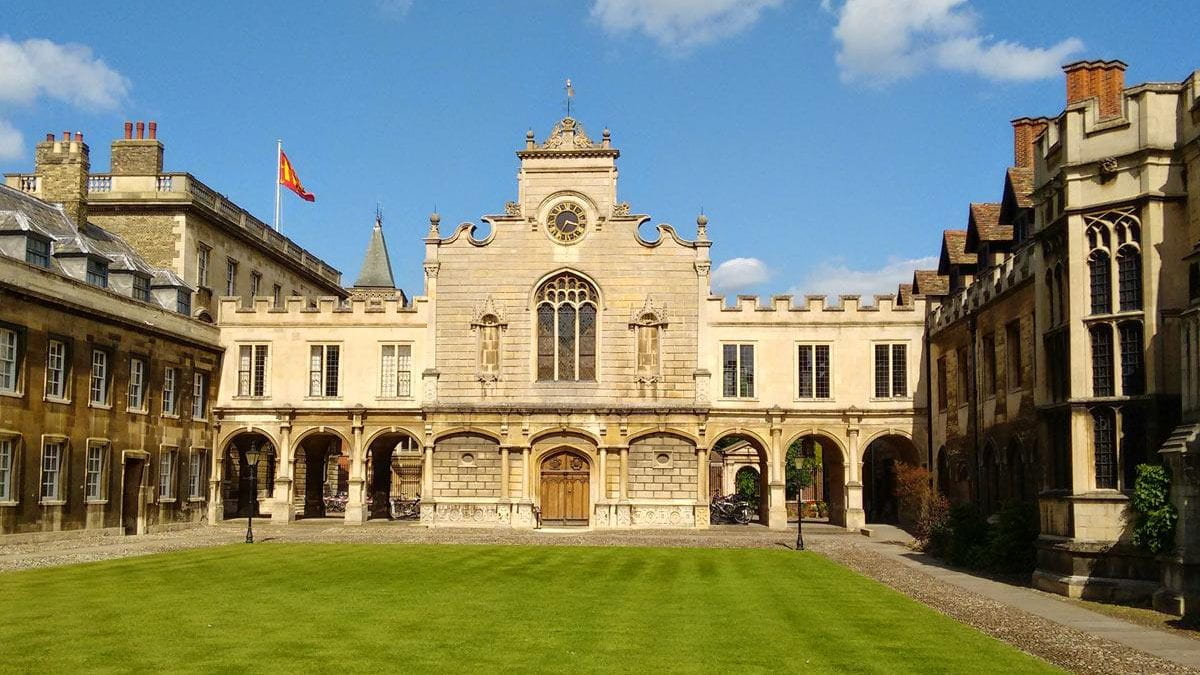by Charles Troup
For many on the Right today, describing something as “Marxist” is sufficient to mark it out as something every decent conservative should stand against. Indeed, at first glance Marxism and conservatism may even look diametrically opposed. One is radically egalitarian, whilst the other has always found it necessary to defend inequality in some form. One demands that a society’s institutions express social justice; whilst the other asks principally that they be stable and capable of managing change. One proceeds from principle; the other prefers pragmatism.
But things weren’t always this way. The Right’s most creative thinkers have often drawn on an eclectic range of sources when expressing and renewing their creed—Marx not excepted. On the British Right, in fact, we can find surprisingly frank engagement with Marxism as recently as the 1980s: in particular amongst the Salisbury Group, a collection of “traditionalists” skeptical about the doctrines of neoliberalism which were conquering right-wing parties in the Western world one by one.

The influence of Marx is plain, for instance, in the philosopher Roger Scruton’s 1980 book The Meaning of Conservatism. Here Scruton made the striking claim that Marxism was a more suitable philosophical tradition than liberalism for conservatives to engage in dialogue because ‘it derives from a theory of human nature that one might actually believe’. This was because liberalism, for Scruton, began with a fictitious ideal of autonomous individual agents and believed that they could not be truly free under authority unless they had somehow consented to it. For Scruton, however, this notion “isolates man from history, from culture, from all those unchosen aspects of himself which are in fact the preconditions of his subsequent autonomy.” Liberalism lacked an account of how society and the self deeply interpenetrated each other. Scruton believed that the individuals yearned to see themselves reflected at some profound level in the way their society was organized, in its culture, and in the forms of collective membership it offered. Yet liberalism presented no idea of the self above its desires and no idea of self-fulfillment other than their satisfaction.
Marxism, on the other hand, possessed a philosophical anthropology which was much friendlier to the sort of “Hegelian” conservatism which Scruton advocated. He was particularly impressed with the concept of “species-being” or “human essence,” which Marx had borrowed from Ludwig Feuerbach and employed in the Manuscripts of 1844. It was this notion, Scruton reminded his readers, that underpinned the whole centrality of labour for Marxists, since they regarded it as an essential, intrinsically valuable human activity. Moreover, it was the estrangement of the individual from their labour under capitalism which caused the malaise of ‘alienation’: that condition of spiritual disaffection which, Scruton believed, conservatives should recognise in their own instincts about modernity’s deficiencies. Of course, the conservative would seek to ‘present his own description of alienation, and to try to rebut the charge that private property is its cause’; but Marxists should be praised for recognising ‘that civil order reflects not the desires of man, but the self of man’.
There was an urgent political stake in this discussion. Scruton had welcomed Thatcher’s victory in 1979 as an opportunity to recast British conservatism after its post-war dalliance with Keynesianism and redistributive social policy. Still, he felt a sense of foreboding about the ideological forces which had ushered her to victory. The Conservative Party, he complained, “has begun to see itself as the defender of individual freedom against the encroachments of the state, concerned to return to people their natural right of choice.” The result was damaging ‘urges to reform’, stirred by the newly ascendant language of “economic liberalism.” Scruton implored his fellow conservatives not to mistake this for true conservatism, but to recognize it as a derivation of its “principal enemy.”
In doing so, he once again compared Marxism and liberalism to demonstrate to conservatives the limitations of the latter. “The political battles of our time,” he wrote, “concern the conservation and destruction of institutions and forms of life: nothing more vividly illustrates this than the issues of education, political unity, the role of trade unions and the House of Lords, issues with which the abstract concept of ‘freedom’ fails to make contact.” Marxists at least understood that “the conflict concerns not freedom but authority, authority vested in a given office, institution or arrangement.” Their approach of course was “to demystify the ideal of authority’ and ‘replace it with the realities of power,” which Scruton thought reductive. But “in preferring to speak of power, the Marxist puts at the centre of politics the only true political commodity, the only thing which can actually change hands”—it “correctly locates the battleground.”
Scruton wasn’t the only figure in the Salisbury Group to engage with Marxism. So too did the historian Maurice Cowling, doyen of the “Peterhouse school” associated with the famously conservative Cambridge college. He believed that Marxism’s “explanatory usefulness can be considerable” and was even described by one of his admirers as a “Tory Marxist jester.”

Cowling hated the Whiggish historians who dominated the English academy in the first half of the 20th century, and welcomed the rise of the English Marxist school in the 1950s—those figures around the journal Past & Present like E.P Thompson, Eric Hobsbawm, Dona Torr and Christopher Hill—as a breath of fresh air. Whereas Whig liberals gave bland and credulous accounts of the motive forces of British political history, the English Marxists were cynical and clear-eyed about power and conflict. As he explained in a 1987 radio interview for the BBC, he agreed with them that “class struggle” was “a real historical fact” and that we should “always see a cloven hoof beneath a principle.” Marxists knew that any set of institutions unequally apportioned loss amongst the social classes, making the business of politics that of deciding in whose image this constitution be made.
This was one point for Cowling where Marxists and conservatives parted ways: accepting the reality of class struggle didn’t mean picking the same side of the barricades. But Cowling believed that conservatives also diverged analytically from Marxists. One of their great errors, he wrote, was to believe that all forms of cultural or social attachment which entailed hierarchy were reducible to false consciousness; but Cowling believed that these were more concrete, especially if they connected to a sort of national consciousness he often referred to in quasi-mystical terms. The error made Marxists naïve about “the fertility and resourcefulness of established regimes.” For Cowling, it was the job of conservative political elites to enact this “resourcefulness:” to tap into the deep well of national sentiment and renew it for successive generations, and thus to blunt class conflict and insulate Britain’s political system from popular pressure.
We can see Cowling applying these ideas to contemporary politics most explicitly in the Salisbury Group’s first publication, the 1978 edited collection Conservative essays. Here he criticized Thatcher’s political rhetoric. Adam Smith might be a useful name to deploy against socialism, he wrote, but if carried to its “rationalistic” pretensions his political language was too rigid and unimaginative for the great task facing conservative elites. “If there is a class war—and there is—it is important that it should be handled with subtlety and skill […] it is not freedom that Conservatives want; what they want is the sort of freedom that will maintain existing inequalities or restore lost ones.” No class war could be managed by “politicians who are so completely encased in a Smithian straitjacket that they are incapable of recognizing that it is going on.” Conservatives needed to read more widely in search of insights to press into service against the reformers and revolutionaries of the age.
Marx rapidly fell out of favor as a source for creative borrowing, however. The collapse of the USSR was hailed by many conservatives as the ultimate indictment of socialism and Marx’s whole system along with it – something many on the Right still believe. Even Scruton became more reluctant to engage with Marx as the Cold War wore on (Cowling criticized him for making the journal Salisbury Review “crudely anti-Marxist” under his editorship). The frank openness to learning from Marx that we find in these texts looks like a historical curiosity today.
The story of the Salisbury Group is also something of a historiographical curiosity. The conservative revival of the 1970s has been the subject of much excellent work in recent British history; but the Group, despite its reputation on the Right and the status of its most prominent figures, has with a few exceptions been passed over for study. Thatcherism and its genealogy have understandably drawn the eye, but this has sometimes unhelpfully excluded its conservative critics or more skeptical fellow-travellers. Historians should seek now to tell more complex stories about the intellectual history of conservatism in this period: after all, the ascendance on the Right of the doctrines and rhetoric of neoliberalism was, in the words of philosopher John Gray, “perhaps the most remarkable and among the least anticipated developments in political thought and practice throughout the Western world in the 1980s.”
As for the present, whilst we shouldn’t expect a conservative re-engagement with Marx we should expect to see more creative re-appropriation of thinkers beyond the typical right-wing canon. This is especially so because the Tory Marxists of the 1970s were looking for something still sought by many conservatives today. That is a counterpoint to a neoliberalism which in its popular idiom increasingly rests upon a notion of individual freedom which fewer and fewer people experience as cohering with their aspirations, values or attachments; or which appeals to moralistic maxims about personal grit, endeavour and innovation which are belied by the inequalities and precarities of contemporary economic life. They seek a political perspective which issues from a holistic analysis of society and its constituent forces rather than individualistic axioms about entitlements and incentives, and which can speak to alienation and to conflict over authority. We can see this process underway already on the French Right, as Mark Lilla made clear in a recent article, where a new generation of intellectuals count the ‘communitarian’ socialists Alasdair MacIntyre, Christopher Lasch and Charles Péguy among their lodestars. And in a perhaps less self-conscious way we can see it on the American Right too, as the long-durable “fusionist” coalition between social conservatives and business libertarians comes under strain: witness Patrick Deneen’s surprise bestseller Why Liberalism Failed and the much-publicized debate between Sohrab Ahmari and David French over whether conservatives should reject or reconcile themselves to liberal institutions and norms. In this moment especially, we should expect to see more inspiration on the intellectual Right from strange places.
Charles Troup is a second-year Ph.D. student in Modern European History at Yale University.




Leave a Reply